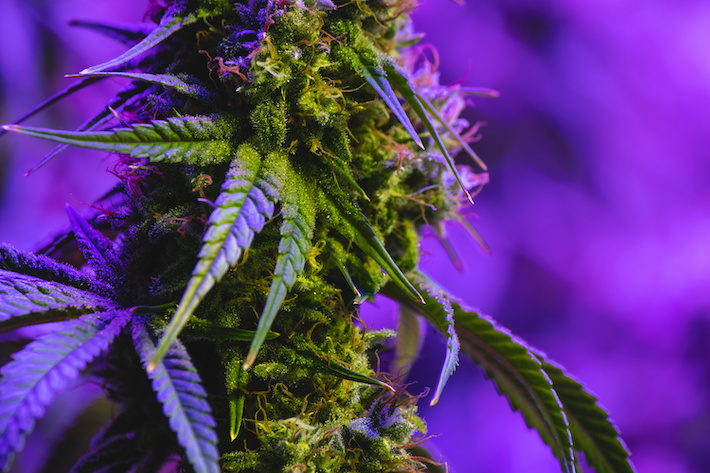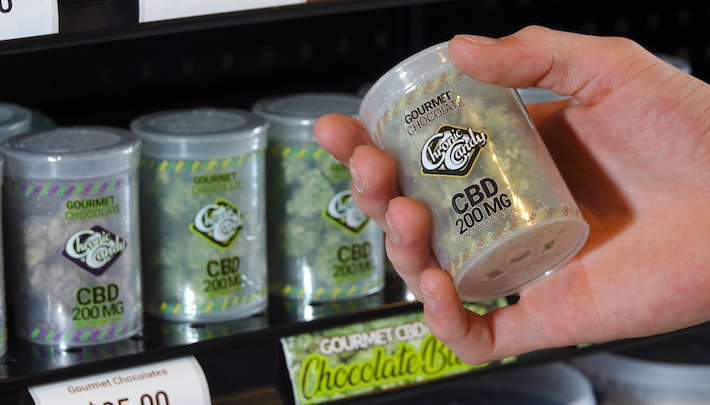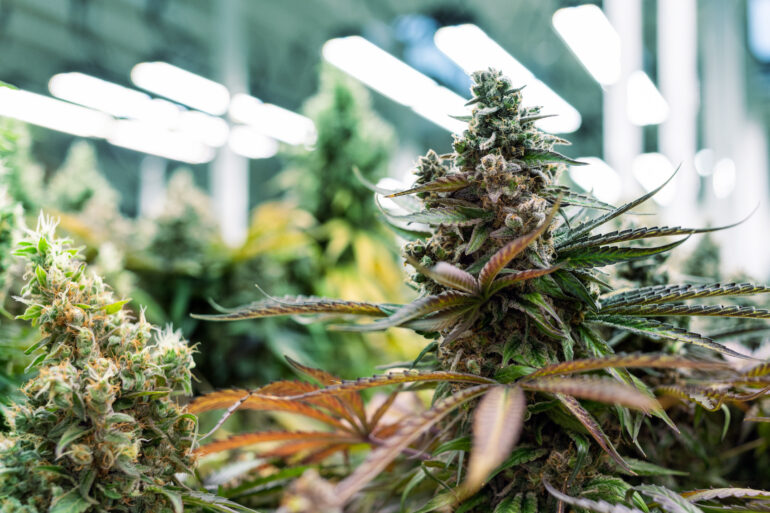Marijuana might be legal in Alaska, but delta-8 THC is not.
State lawmakers eventually took on the provisions of the 2018 Farm Bill, but unlike in many states, they didn’t exempt the THCs in hemp from the definition of THCs in the state’s controlled substances bill. But what does this mean for delta-8 THC products in Alaska?
We’ve combed through the relevant laws to answer the most common questions about delta-8 THC in Alaska.
Is Delta-8 THC Legal to Sell in Alaska?
Delta-8 THC is not legal to sell in Alaska, because all THCs are considered Schedule IIIA controlled substances in the state.
While Alaska’s most recent hemp law, Senate Bill (SB) 27, defines hemp in line with the 2018 Farm Bill, the exemptions to the state’s controlled substances bill work a little differently to other states. Although hemp is exempted from the definition of “marijuana,” the THCs in hemp are not exempted from “tetrahydrocannabinols.” Additionally, the law states that THCs are controlled substances “unless specifically excepted” (i.e. exempted).
This means that delta-8 THC, despite being a component of hemp, is still a Schedule IIIA controlled substance in the state. The definition of hemp gives a specific exemption for delta-9 THC up to 0.3% by dry weight, but doesn’t say anything to expressly allow delta-8.
RELATED: Where Is Delta-8 THC Legal?
Delta-8 THC Legislation Timeline for Alaska
Delta-8 has never been officially legal in Alaska. No legislation has directly authorized delta-8 or any other hemp-derived compound, including CBD, CBG, and CBC. All current legislation has either established a hemp pilot program or regulations surrounding the sale, production and marketing of hemp products.
In April 2018, then Alaska Governor Bill Walker signed SB 6 into law. This bill introduced Alaska’s first industrial hemp pilot program and authorized the Department of Natural Resources, Division of Agriculture (DoA) to research the cultivation and marketing of hemp.
On April 4th, 2020, the DoA implemented the Alaska Industrial Hemp Pilot Program. This hemp pilot program followed the guidance of 2014’s Farm Bill (Section 7606) and the aforementioned Senate Bill 6. It also gave Alaskan businesses legal ways to produce and market hemp and hemp products.
Later, in September 2021, current Governor Mike Dunleavy approved and signed SB 27 into law, creating a permanent hemp pilot program that falls in line with the 2018 Farm Bill. It also creates a strict regulatory system for the sale, production, and marketing of hemp, hemp compounds, and hemp-derived products.
Can Delta-8 THC Be Added to Food?
Delta-8 THC cannot be added to food in Alaska. While the state does allow marijuana edibles as part of the regulated marijuana industry, hemp delta-8 is banned in the state.
The federal Food, Drug and Cosmetic Act (FD&C Act) makes it illegal to add delta-8 THC to foods that enter interstate commerce. Alaska law does state that adding hemp to food doesn’t automatically make it adulterated, which means that hemp edibles are allowed if they remain in the state. However, since delta-8 THC is banned in the state, adding it to food is totally out of the question.
Can You Buy Delta-8 in Alaska?
Delta-8 THC is not available to buy in Alaska. The state has never allowed delta-8 THC, and so both online and brick-and-mortar stores can’t sell it.
Delta-8 Alternatives You Can Legally Buy in Alaska

As with delta-8 THC, without an exemption for THCs in hemp, delta-7, delta-10 and other THC isomers are banned in Alaska. However, marijuana is legal in the state, and so this is the best legal delta-8 THC alternative.
Are There Age Restrictions on Delta-8 THC Products?
Delta-8 THC products can’t be sold as hemp, so there are no age restrictions as such. However, if it were to be legally sold as part of the regulated marijuana industry, it would be only sold to adults aged 21 or over.
Can You Consume Delta-8 THC in Public in Alaska?
Delta-8 THC is not legal in Alaska, so public use is not allowed either. Even marijuana must be used in private.
Can You Drive Under the Influence of Delta-8 THC in Alaska?
No, Alaska law forbids driving under the influence of “any controlled substance,” and delta-8 THC is considered a controlled substance in the state.
For a first offense, punishment includes a minimum fine of $1,500, at least 72 hours in jail, 90 days’ license suspension and having an ignition interlock device installed on your vehicle for six months after you regain your license.
RELATED: Does Delta-8 THC Show Up on a Drug Test?
Can You Travel to Alaska With Delta-8?

No. Delta-8 THC is considered a controlled substance in Alaska, so you are not permitted to travel into the state with it in your possession.
Closing Thoughts: The Future for Delta-8 in Alaska
Alaska has already legalized weed and banned delta-8 THC, so nothing is likely to change for people in the state.
However, on June 8, 2023, the Alaska Division of Agriculture proposed regulations that would prohibit the sale of any hemp-derived products intended for human consumption that contain any amount of THC, which necessarily includes delta-8 THC. These regulations have not come into force yet (as of September 2023), but the public comment period has now closed.
While federal law surrounding delta-8 THC will also change in late 2023, this is most likely to exclude products created by chemically modifying natural components of hemp from the definition of “hemp.” In many states, this will amount to a ban on commercial delta-8 THC products; in Alaska, nothing will change.
